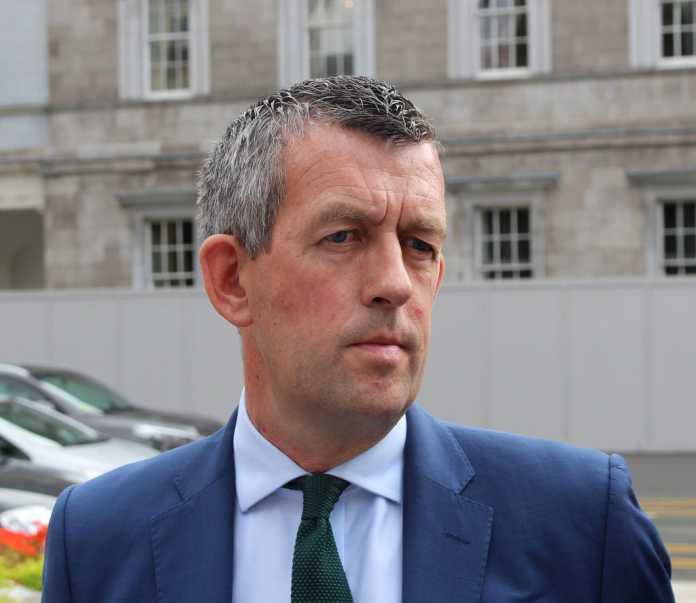A LIMERICK TD has welcomed changes to the Wage Subsidy Scheme this week, but has said more needs to be done to protect low-income workers.
Having called for changes to the Wage Subsidy Scheme announced in response to the COVID-19 crisis, Sinn Féin Deputy, Maurice Quinlivan TD, welcomed announcements to the changes announced this week, but has said more needs to be done.
Deputy Quinlivan said his party called for the Minister for Finance, Paschal Donohoe, “to reform the Wage Subsidy Scheme to protect the incomes of low-paid workers” two weeks ago.
“Because employers were only required to pay 70 per cent of employees’ wages under the scheme, workers with weekly take-home pay of less than €500 were receiving less than they would from the Covid-19 Pandemic Unemployment Payment,” the Limerick City representative said.
Mr Quinlivan said Sinn Féin proposed a scheme that would see workers receive “100 per cent of workers’ net weekly pay up to a maximum of €525 to avert this anomaly”, but said, “Unfortunately, this approach was not adopted by the government.”
However, the Sinn Féin Deputy said this week’s changes which see employees with net weekly pay between €412 and €500 would receive a €350 subsidy payment were “welcome”.
Deputy Quinlivan said, “This announcement, though, still falls short of what is required – with workers with weekly pay of less than €412 still set to earn less than €350.
“Yet again the Minister has failed to step up and provide the necessary protections to workers on low pay.”
He concluded by saying his party would “continue to work for greater income protections for those on low pay during and after this crisis”.
Speaking to RTÉ Today with Seán O’Rourke on Friday, the Minister for Finance said the current Wage Subsidy Scheme could be sustained by Government for the twelve-week period.
He said, “From an economic point of view, the kind of measures we have in place at the moment cannot continue indefinitely, they are emergency measures.
“But for this phase of the public health crisis, we are in a position where we are able to sustain them.”
The Minister for Finance said that “at a point in time” when exiting this stage of the COVID-19 pandemic “we’ll have to make decisions regarding our emergency measures”.
Minister Donohoe said the current measures in place are estimated to cost between 300-400 Million Euros per month, but said he is “absolutely certain that all the commitments we have given from an income support point of view we can sustain for that 12-week period”.






